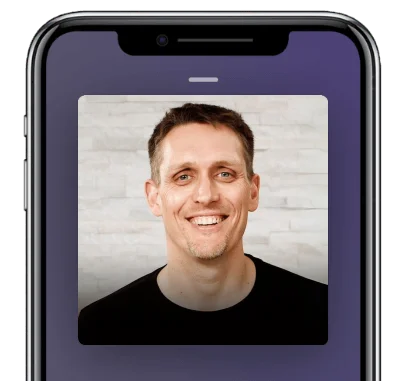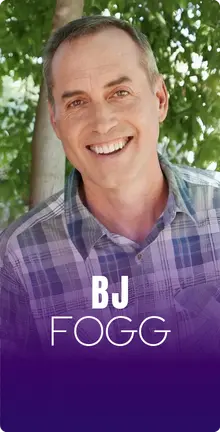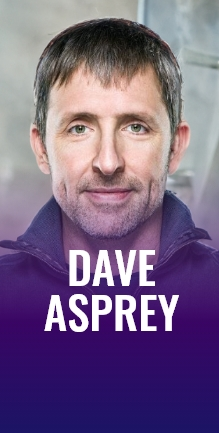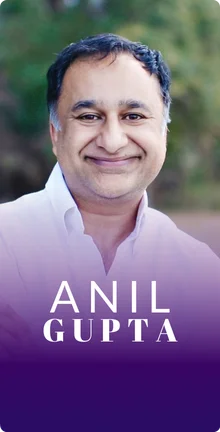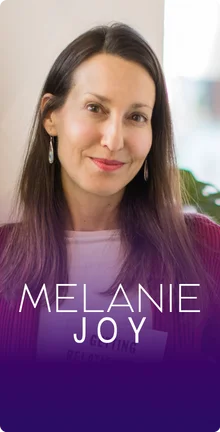In this Episode
- [00:40]Stephan introduces David Henzel, an inspiring serial entrepreneur and creator of Managing Happiness.
- [06:05]David shares his healthy diet and daily habits for optimizing his lifestyle.
- [12:00]What are the objectives of David’s course, Managing Happiness?
- [18:18]David describes the structure of homework and modules given in his course, Managing Happiness.
- [25:20]David shares how he keeps people coming back or staying involved in his group coaching sessions.
- [33:27]Stephan talks about a previous podcast episode he had with Ken Okazaki on how to improve your video skills.
- [38:42]David interprets one of Sadhguru’s lectures in his Inner Engineering course which is sharing what you can give.
- [45:17]David elaborates on his core values both in business and in life.
- [51:27]Some of the ways you can inspire yourself to optimize your lifestyle based on David’s experience.
- [57:25]Check out David Henzel’s course at managinghappiness.com, UpCoach website at upcoach.com, and visit his personal website at davidhenzel.com to learn more.
David, it’s so great to have you on the show.
Thank you for having me.
So we’re going to talk about mostly managing happiness and what that means and how folks can do that, and kind of the optimizations that you’ve put in place, and that you’re helping others, entrepreneurs and clients put into place themselves. Because you’ve had some very successful wins, and you’ve optimized a lot about your life. So right now, what would you say is the biggest optimization hack that you have acquired over these years? And we’ll just kind of start off with a powerful note here.
Habits determine everything in your life.
I mean, it’s pretty basic, but I’m a firm believer that habits determine everything in your life. And if you’re rich or poor, happy or unhappy, or in peace or in shape, it all boils down to the habits that you cultivate in your life. So I’m a big habit nerd. I have a very strict morning routine, and I use a habit tracker. And that’s like one of the key optimizations in my life: I just make sure what you measure will improve, business 101, so I think habits are probably my big one.
Okay, so let’s dig a little deeper into that one. What habit tracker are you using? I’ve used Way of Life, for example, and I got out of the habit of using that habit tracker, though, because of, well, what I found out afterward talking to BJ Fogg, who’s kind of the godfather of the habit formation, was that there was no shine in missing a day. Shine is the emotion or feeling of success. There was no name for this emotion until he named it. So the way that you succeed with a new habit is by maintaining shine, and you feel that success, and therefore you keep doing it. You put into the Way of Life app that you missed a day, and then there’s a big red there that breaks the chain, and then you don’t feel good about starting all over again. You feel great while the chain is still going, but I put some red marks in there, and then my usage of that app just drifted. It should reinforce that shine. So I’m curious what habit tracker are you using and how are you reinforcing shine in order to maintain the habits?
So we’ve built our own habit tracker, which is part of Managing Happiness. Originally we started out with a Google spreadsheet super ghetto, but my CTO of one of our businesses of 50 SaaS, he took the course, and he really fell in love with the concept, and so he started building this habit tracker, and then we build upon that. Now we have like this software which is called UpCoach, where we help other coaches to provide group online coaching for other coaches so they can reach more clients. I’m using my own habit tracker, and with the shine thing, I have this to restart a routine in case I miss a habit or in case I fall off the wagon. I trigger my restore routine, which is like kind of getting a massage, getting a good haircut, just self-care stuff, and then which is kind of hard to these days but I do whatever I can to take care of myself and then from the next day on, I say, “Okay, now I’m on good behavior again. Let’s do this again.”
Okay, that’s brilliant. I love that. So it’s more encouraging you to get back on track rather than the feeling of guilt or shame or that you don’t measure up. I love that.
Habits determine everything in your life whether you're rich or poor, happy or unhappy, or at peace or in shape. It all boils down to the habits you cultivate. Share on XAnd I have an early warning sign, like the canary in the coal mine, which is my inbox zero habits, like when I miss my inbox zero habit for too many days in a row. That’s a clear indicator that there’s too much going on in my life. And then I can always take a step back and think, “Okay, what’s going on? What can I maybe not do or delegate or whatever?” And usually, it starts with my inbox zero not getting done then I started eating after 9 PM which is a prompt for me, not for weight, but if I eat after 9 PM, I get this energy boost, and then I’m up to like two or three and then my morning routine suffers. So kind of was to circle too much going on will power gone, end of the day, eating something and then the circle starts.
Gosh, do you have a particular diet routine that you have, are you doing intermittent fasting or what?
I used to do intermittent fasting for a long time, but since my personal trainer is forcing me to eat before we work out in the morning, so this kind of breaks. Three to four times a week, I’m not doing intermittent fasting, and I’m vegan, and I also don’t do caffeine. I don’t smoke, completely drug-free, I don’t drink. And this also, like, I think a big reason for being more optimized since we’re talking about optimization here.
Now one thing I’ve recently learned about intermittent fasting, and it was from one of the big biohackers, I don’t remember if it was Dave Asprey or Ben Greenfield or whoever, but intermittent fasting doesn’t work if you’re under stress. So if you are feeling stir crazy because of the lockdowns, you’re feeling stressed out because of the economic downturn, and you’re worried about paying the bills, paying your team, and so forth, intermittent fasting is not necessarily going to work for you because of the biological cascades that happen when you’re under that kind of constant chronic stress.
We tend to focus on the negative stuff that’s going on in our lives and completely forget how much beauty we still have in our lives.
Interesting, I didn’t know that. I’m actually really stressed. I have another habit, and it’s like a gratitude exercise. I would like to scratch a rock every morning, I go through the things I’m grateful for, and throughout the day I have it in my pocket. And sometimes I get stressed but then feeling this rock brings me back to actually everything as well as this problem we all deal with as well. It’s like we tend to always focus on the negative stuff that’s going on in our lives and completely forget how much beauty we still actually have in our lives like healthy family members, we have enough to eat, we have a roof over our heads. Even if businesses lose money or whatever, who cares, right? In the big picture, and at the end of the day, when I come home and take the rock out of my pocket and go through the things that went great to say. Because often you have a very productive morning, everything’s great, and then at 5 PM, you have an unpleasant conversation with a customer, employee, or spouse, and you think everything sucks, but it does not, and there’s still so much good stuff going on.
So how do you connect with that overall sense of gratitude? Even when you’re going through an argument? Do you reach into your pocket and hold the gratitude rock or something?
No, it’s just like a reminder, sometimes I feel the rock, then this brings you back to, “Okay, I’ve dealt with worse, that’s fine.” We gotta figure it out. And at the end of the day, do the reinforcement to really think about like, “Hey, even though the state was stressful, that didn’t go right. There’s still good stuff going on.”
That’s awesome. How did you end up coming up with this concept of a rock? I even have gratitude exercises, journaling, and meditations. I hear about all that sort of stuff, but I can’t remember the last time I heard of using a rock as a way to trigger or kind of anchor gratitude. That’s awesome.

I think it was from The Secret like many years ago when this came out, and then I kind of tweaked the idea that they had. I’ve been doing this for many years. And another thing is I’m very good at accepting things, the Serenity Prayer, once you accept something, you can act. Otherwise, you just react. And it doesn’t really matter what happens, and I’m just like, “Hey, this really sucks. Now let’s see how we can make the situation better.” Then you’re like empowered, and you’re not in the victim role, like when you’re in a victim role, like, “Oh my god, COVID-19 happened, I’m screwed,” there’s always something you can figure out.
Yeah, I forget where I heard this from, but supposedly they’re no victims only volunteers for us adults.
I like that.
Okay, so now one thing that you had mentioned before we started recording is that you had started this Managing Happiness program as a course. The completion rates of the course weren’t that high. In fact, pretty much across the board with any online course, the completion rates are quite low. It doesn’t matter whether the course is in theoretical physics or it’s in basket weaving or entrepreneurship. Usually, the completion rates are quite low, and thus you don’t get the outcome. If you’re signing up for a course, you’ve got this feeling that okay, I’m buying something that’s going to get me an outcome, but then you got to do the work. Otherwise, no outcome, you paid the money, and it just sits on a virtual shelf. So you came up with a way of innovating the online course structure so that it became much higher completion rates and outcomes were just through the roof, people were very happy, and they got what they were after. So what did you do, and why?
So I had this course called Managing Happiness, and originally it was like, applying business principles to family life. And the completion rate for this course was 7%. And this really aided me because I was doing this mainly to positively impact people’s lives, not necessarily money; this was not my primary focus on this course. And I thought my course must really suck, and then I looked at the numbers as actually the norm that’s like some 10%, there’s no completion rate. So I thought, how can I get this information into people’s heads? And then I started group coaching, so I invited eight people and start, it’s this like the content Managing Happiness, which is figuring out your personal mission vision values, your 90-day, three-year, and one-year plan, and the habits that you need to actually achieve what you set out to what you actually really want. And I’ve done maybe 15 cohorts by now and always between 8-12 people or 6-12 people, and the completion rate is only two people dropped out because they had business emergencies and everybody else completed, and they saw really massive results. I’m such a huge fan of group coaching because it works like we have a Zoom call, one hour a week over eight weeks, there are some homework and some videos that they watch before the course and this positive peer pressure. Like if you’re in this group, and you don’t want to be the person who didn’t do their homework or like doesn’t do the habits, etc. It’s so powerful, and to up this, we have these accountability buddies, it’s three people together that hold each other accountable when somebody drops the ball, then the other person reaches out like, “Hey, what’s going on? Why are you not doing XYZ?” It’s just been crazy powerful.
I was doing my course mainly to positively impact people’s lives, not necessarily money.
So you’re saying that when somebody drops the ball, another person, the accountability group reaches out? How do they know that somebody dropped the ball? Do they see a report or something? How does that work?
So it’s basically in the platform that we’ve built, it’s under upcoach.com now, so other people can use it as well. You have this transparent habit tracker, so everybody in the group sees everybody else’s habits. Everybody in the group sees everybody else’s to do if they do or not. And everybody else has their North Star, which is like their mission vision values. And we also commit to doing something between one and three things that bring you closer to one of your 90-day goals, and you tell the group like, “Okay, I’m committing to it, and I’m doing XYZ,” so people actually do the important and not just urgent, and it can just cause peer pressure and has been really effective.
One thing I have a problem with, I’ve admitted it many times on this podcast is I have an incredibly long to-do list. I keep it in an app called Things by Cultured Code. And I have easily over 5000, maybe 6000 items in my to-do list now, which is insane. And it stresses me out going in there. So it’s my trusted system as far as dumping ideas and next actions and so forth into that system. But it’s not a trusted system in the way that I review on a weekly or even semi-regular basis what’s in that to-do list. So I don’t base my day on what’s in there, which is kind of pointless to even have one if you are stressed out to keep doing it.
I use the bullet journal, which has been super effective for me. And basically, I plan that a week, every Sunday evening, I sit down and I look at my 90-day plan, I pick a few things out where I have to work on this week. And then I write them in the corner, the stuff that I’ll have to do this week, or I want to do this week. And so I make sure that I work on one of these items every day, so I’m actually moving the ball in the right direction. And by detaching these long lists that you can potentially have and just like having it in the bullet journal, week by week, it’s like much less anxiety and more focus. Because there are so many things that you could do, actually, a friend of mine told me a good coaching question that his coach told him it’s, “Imagine you have only four hours of work you can do this week, which are the projects that you want to focus on, or which one of the things that you would do and basically do these things go hard on these and just like, ignore the rest and that you` don’t like, move the ball forward.” So it’s been very powerful for me, especially because I’m involved in so many businesses. I asked myself this question every Sunday, and this is very powerful as well.

So it will be an answer, like, give me an example of this week’s answer to that question like, what would you do for the four hours of this week?
So I have to iron out a few contracts for a few businesses that are currently up in the air. That’s like the biggest thing. I had to hire the new developer for UpCoach, so we’re moving faster, which is just another contract, this guy will come on board so it will be solved. And I have to promote Managing Happiness to a new group this time. So these were the key things that I really want to get done. And everything else is just icing.
Okay, and Managing Happiness is not your primary source of revenue, not by a longshot, right?
No, it was never my goal to just like to do this for the money. I even thought about turning this into like a Toastmasters-esque thing, or like an AA type thing where people are kind of self-organized groups. Initially, I want to turn it into a positive Ponzi scheme. So basically people pay $1,000 to join the group, and then you have to start your own group and invite people and teach them what you just learned. And then you get the thousand dollars back. And this also something for this week to evaluate, like, how can I really achieve this? Right now, it’s like a linear course, so basically, it’s a cohort, and then people walk through this, and I want to figure out the system how we can do this with Managing Happiness and also with UpCoach platform, that can be ongoing groups where new people join and then we can still teach them the same stuff. So that’s kind of on my to-do list this week.
That’s great. So it’s a passion project, it sounds like it’s got a lot of juice to it for you personally in terms of your own mission and vision. That’s not one of your big business ventures.
Coaching, especially remote coaching industry, is like a blue ocean because it’s getting bigger and bigger.
I think it could turn into a very big business venture because the coaching, especially remote coaching industry, I think it’s like a blue ocean because coaching is getting bigger and bigger like a few years ago, when you had a business coach it was like “Oh, really?” and nowadays, it’s like it’s pretty common.
But it’s not sophisticated, right? So the kinds of coaches that I’ve worked with, don’t use sophisticated tools like what you were describing and the ability to have the whole cohort be able to see whether I’m doing my habits are not. Very clever.
Even as the coach, if you have one-on-one coaching, you see if the person checks off the habits, to check off their to-dos, if they fill in the information that they have to fill into the worksheets that you have. Usually, you kind of have to figure this out on the coaching call, but now you can kind of go in before that and figure out okay, “Here’s what he or she’s falling short here, then he can address the right thing.” We can proactively reach out and say like, “Hey, man, what’s going on? Why don’t you do blah, blah?” Just make this accountability things, which is another really powerful thing.
Yeah, I have some coaching clients, and they don’t always do their homework. Yeah, that’s actually pretty common. I’m thinking of one person in particular. I wonder if he’s gonna be listening to this.
You know who you are.
You know who you are. Yeah, exactly. So what’s the way that you make sure that somebody is doing the homework? Is it listed as their to-dos, or is there some sort of framework for giving out homework for figuring out whether it’s achievable and very kind of ring-fenced and specific? That’s something I kind of wing at a little bit. “So all right, well, based on what we discussed, here’s what I want you to do for this coming week.” I just kind of make it up as I go along. So if there’s more structure to it, I’d love to hear what that is.
So I mean, if it’s one-on-one coaching, it’s very specific, then it kind of makes sense if you wing it in terms of the homework or their to-dos.
Yeah, it is one-on-one coaching.
But in this group setting where you kind of have like a common goal that everybody is working on the same thing. We have a video that explains what the homework is, and what they should kind of give them some thoughts on what they should think about. And then you can define in the module what the to-dos are, what the habits are, perhaps can also be KPIs that you have to track, and what the homework is, and this will be automatically added to their habit tracker or to their to-do lists, etc.
In every aspect of my life, I try to do my best to look at everything from a distance to see whether I am shedding light on myself and others in everything that I do. Share on XGotcha. Okay, so you mentioned KPIs, key performance indicators. There’s another term that especially people in the Silicon Valley kind of software industry are familiar with, and that’s OKRs. Could you differentiate for our listeners, KPIs, and OKRs, and which ones you recommend our listeners to follow or incorporate into their lives?
I personally played around with some OKR tools, and I’ve read a book about it.
OKRs stands for objectives and key results.
But I personally always use just normal KPIs.
Okay. So what’s an example of a normal KPI?
A normal KPI can be activity KPIs, like how many sales calls do you do, how often you work out, or your revenue goals or whatever.
Gotcha. Okay. And do you have any kind of prizes or incentives, surprises somehow that get baked into the program so that people are reinforced with positive rewards and things that they don’t expect? Because the research from Pavlov was that the more it was expected the reward, the incentive kind of lost its juice.
Now we plan on adding some gamification to it, but right now, there’s nothing really aside from the other people in the group getting cheered on when you did something great, and dozens of technologies and people.
My North Star is my personal mission, vision, core values, to-do list, and my three-year, one-year, and 90-day plan what I want.
Yeah, got you. So you mentioned the term North Star, which I don’t normally hear in coaching space or in the world of OKRs and so forth. Is that something that you came up with, or is that from another program that you incorporated?
No, this is something I came up with because my North Star is my personal mission, vision, core values, to-do list, and my three-year, one-year, and 90-day plan what I want. This is where I’m going, and when I make a big decision, I can always run these big decisions through my North Star. My mission is aligned with my vision, my core values, so I’ll make sure that I’m always going towards the right direction.
And let’s unpack this a bit more. What’s the difference, and in your mind, between the vision and the mission, and why have a three-year and one-year set of goals? So let’s start with those two things.
So the vision is basically where you’re going, kind of like the why to some degree, and then the mission is kind of like the how are you going to do that.
Okay, what’s your vision, and what’s your mission?
My personal mission is to be a change agent who is transforming the lives of individuals and organizations so they can reach the full potential, just something that makes me very happy. And actually, this has been through multiple iterations, and this is the final version right now. And my mission is to build a school coaching platform that empowers thousands of coaches to help millions of people to succeed. Originally, I want to do this with Managing Happiness, but now that we have this platform, I think it can be even more amplified, and it can have an even more positive impact when I empower coaches to be better and to reach more people.
And you have some pretty big coaches that are working on this platform. It’s new, and it’s a closed environment right now kind of beta test, but are you allowed to share any of the big names?
My personal mission is to be a change agent who is transforming the lives of individuals and organizations so they can reach the full potential.
I didn’t ask them if it’s okay.
Okay, well, nevermind then. But there are some people who are big and have a big following, in fact, maybe even past guests of this show, so we won’t get any more specific than that. But it’s impressive, so I would love to see you go viral with this UpCoach platform.
I really hope so.
It’s impressive. It really has some differentiating factors and features to it that make it much more impactful from what I can see. What do you charge for your Managing Happiness program?
Managing Happiness program was $1,000 originally, but we put it down to $500. Now when COVID happened, we move it down to $300 to make it really affordable to people. You’re in a group between six and 12 people, and you have like eight hours, one hour per week on the Zoom call, kind of working through this stuff. I’m probably going to move the price back up to $500 again because I think people are going to get used to the new normal, and in all my other businesses, sales are picking up again. So I think if you’re not in like one of the industries that have been really hit hard by this, I think it’s kind of back to normal. And I also have another coach who’s also running all these groups now, and make sure they’re paid well.
And do you have, I don’t know if you call them students or members or how do you refer to them?
I guess coachees, group members, not sure.

Okay. So these folks, are they just doing the one-off eight-week program, or do you get some folks who want to do it again and again and again?
Actually, I have multiple people who do it multiple times now.
Okay.
And I was so surprised. I think it’s not the normal culture model because usually as a coach, you want to keep the client around, for me, because I did this as my passion side project, I just want to run people through it and then get rid of them.
Get them their outcome and then move on.
Yeah. What’s also super cool is the groups after the eight weeks, most of them still meet bi-weekly or monthly without me and still hold each other accountable, which is so cool to see. But a bunch of people actually just opted to do it all over again.
Your time is super valuable, and you need to be very intentional about where you spend it.
Very cool. I’m in Genius Network, which is Joe polishes group, and it’s great. I love it. And a small group of us who joined at the same time ended up creating our own little accountability group, and we’d meet every Sunday morning at 9 AM Pacific, and I dropped out of that after about maybe a couple of months ago. I dropped out, and I’m curious to hear your take on this because I felt I wasn’t getting enough value out of being in that group. I was certainly delivering a lot of value as delivering more value, and I felt like I was coaching my group. My time is super valuable, and I need to be very intentional about where I spend my time. And Sunday is a day that I don’t normally do calls and stuff. So I’m like, I’m going to drop. So I’m curious what could have been done better with that group so that I would have wanted to stay? And what do you do differently in order to get more outcomes for your coachees when they’re doing these accountability group meetings?
Do you mean while I’m part of it or while they just meet on their own?
Like both, I’m curious if folks who are meeting on their own either during the program or after the program finishes, like how did they continue to get value out of a meeting on a regular basis? And what sort of structures do you provide them that help them with that?
So we have a clear agenda, which is also built into the platform. We can follow the agenda, and it’s usually we start with good news, everybody shares some good news, and we review each other’s habits. Or people kind of write-in like where they struggle and what’s going well so you can get feedback from the group. There’s also actually something that is so amazing is this group coaching because it’s not the coach who has to talk all the time, often the best results are delivered by other group members telling others, like how to solve the problem, this peer learning is super powerful. And then holding each other accountable with their 90-day goals, like, “Okay, I’m gonna do XYZ,” and then having to actually do that. I think these are the things that make it interesting for people. But I know what you mean with like being in, I was part of a few masterminds where I felt that I’d been just kind of delivering lots of value and not really getting much back, and at some point, it becomes old that I can’t accommodate.
And they’re great people, I’m very happy to be in Genius Network, the larger group, but this particular little cohort of accountability partners did not deliver enough value that I wanted to stay. So anyway, but I love what you’re saying about starting with good news, that positive focus, that’s a North Star in itself, right?
At the end of the meeting, we always rate the meeting from 0 to 10, and if somebody gives below an eight, then you tell them why this is below eight. And then you could address these things like, “Hey, guys, you’re not delivering enough value for me,” and you can kind of have this open discussion on like, how you can actually do that, I think that’s also a very powerful thing to just address stuff. And like actually having the system built-in that people are transparent and it’s okay to critique others, thank you, like, “I rate this meeting a five because Stephan did not do what he said he would do, and he was 10 minutes late.”
That’s funny. I remember showing up at one workshop-it was a great workshop, but I was two minutes late for this workshop, and it was run by Ephraim Olschewski, who has been on this podcast. He’s been on both of my shows, in fact. And he spent the first three hours of the workshop talking about, “How you do one thing is how you do everything and your accountability and everything. And it all starts with showing up on time, Stephan.” I felt so bad, so guilty for essentially wasting the first three hours of this, it was a two or three-day workshop, but it was a significant chunk of time spent on this issue because I was two minutes late.
How you do one thing is how you do everything.
I believe in how you do one thing is how you do everything, but sometimes you have to cut people some slack.
Yeah, but the thing is that it made so much of an impact on my life because I realized that I was late for so much in my life because I let my standard slip.
I’m German, so I’m really on time. It almost causes me physical pain when I can see that I will not make it. Like for example, when we want to talk, and the Skype connection didn’t work, it drove me nuts on wasting time and being efficient.
Yeah, it was not a problem for me because we did start on time. Well, I messaged you right at the exact hour and minute that we were scheduled to start, and within a minute we were already communicating and trying to get the connection working. So it’s all good. But I do value people’s time and especially in this environment where a lot of people are doing virtual meetings now, Zoom calls, I am on Zoom calls all day long. Not that I wasn’t before, but it’s significantly more amplified now. And I think we’re kind of called to up our Zoom game because being in so many meetings, people and their expectation levels are higher, that you’ll have a better background that you’ll be more kind of kept. When you show up on a Zoom call, you’re going to have an agenda that you’re going to be efficient and be mindful of people’s time that you’re not going to be late, even a minute late. Like all these sorts of things, I think are elevating people’s expectations. So I’m curious what your thoughts are on that.
Yeah, my next move is to get like a camera link from a DSLR so I can have a really more crisp video that sits on my list, and with agendas and being on time, I think it’s a must. I have an agenda for pretty much everything, and I’m happy to throw the agenda away and do something else, but I like to come prepared and know what I want to get out of this, but I want to do what the calls are. It’s way more efficient than we can joke around do stupid stuff. But at least I kind of have an idea and have a plan which you can just disregard if you want to be playful, but I think it’s just the German in me.
Yes. And so you mentioned a DSLR camera hooked up as your webcam, I’m going to do that too. Or at least I’m planning on doing that and then setting the F-stop to a low number so that it kind of gently fades the background instead of having a virtual background. I find the virtual backgrounds to be distracting and kind of annoying and a little cheesy.
Build trust and loyalty through total accountability. Share on XYeah, it was fun in the beginning. But I actually never did it.
You’ve never turned on the virtual background, me neither. So the DSLR camera with the connector thing actually, I had a whole episode on my other show on Marketing Speak talking about how to up your video game, and that was with Ken Okazaki. But that DSLR camera thing. It’s a nice little difference maker and being thoughtful about what is in the view of the attendee or the person that you’re speaking with. Maybe even having some things that are conversation starters, like I see in your background.
A meditating frog?
A meditating frog in a lotus position. I like that. So that has some meaning for you. Otherwise, it wouldn’t be in the view. What’s the meaning of it, or what’s the value of it for you?
My wife is an interior designer, and she knows I’m a meditating hippie. So she bought it for me. I guess she sees me sit out like this on a regular basis.
That’s cool, though. And it gives people a sense for you just like you’re on a business call talking about, TaskDrive one of these businesses of yours and it’s all business, but they see that in the background and they think, “Oh, this is somebody who’s got their head on straight, they actually take time to meditate or they think it’s important.
When I meet people, in a business situation, or whenever, I’m always super open and I’m not holding back.
I am who I am, and I’m not hiding any of that when it comes to business. When I meet people, in a business situation, or whenever, I’m always like, super open and I’m not holding back. Personal stuff, I don’t care. I like to go deep with people like screw superficial small talk. And this also really helps me to connect much deeper and much better with the people that I meet and has been just like a real blessing in doing that. I’m a recovering introvert, and I used to be very introverted. I did Toastmasters, and I went to two Toastmasters events per week, and two networking events per week to overcome this introverted fear thing because I felt how much this was holding me back in business. And with exposure therapy, I kind of got over this, but the real click in the head happened when my yoga teacher said every decision of life you have to make it out of love or out of fear. If you make it out of love you’re in the right path, if out of fear you’re on the wrong path. And then this really clicked. Then another about me, like in public speaking, what I have to say that can potentially help these people, then I can do it out of love, I can give a good presentation. If I do that out of fear and I think about what people think, do I have a weird German accent? Do people think I look weird? Do people think what I’m saying is stupid? Then I can’t present. Same with being on a podcast, I would have never done this before. I was even uncomfortable on a conference call or in sales. I want to sell you this product here because I want to sell the UpCoach. I would love for you to use UpCoach because I know we can elevate your coaching business. I used to hate sales with a passion because I always felt like a car salesman shoving something down on somebody else’s throat. But if I do it out of love because I know you can help the other person, then it’s totally cool, and the other person also feels he is more likely to say yes versus if I’m acting on the fear and just think about “Oh, I have to hit my numbers. I have to pay my mortgage,” then the other person also feels this, and I feel like s**t. That’s my mantra to make decisions out of love and not out of fear. In every aspect of my life, do my best to always look at this through a distance.
Yeah, I love that. And it’s similar to how I look at just my day and my podcast interviews, the calls that I have, everything that I’m up to, and I look at how am I revealing light or am I revealing light in this situation? So that is kind of similar to what you’re describing with whether you’re doing this out of love or out of fear. And also, I’ve got another thing too, that I learned from Anil Gupta, who was a guest on this podcast, he actually told us, me and my wife, Orion, and it was profound and very impactful for her. And that is that when you don’t step up and do whatever, like a video or a speaking engagement or whatever where you’re afraid to expose yourself right or to make yourself vulnerable when you choose to shrink like that, people are dying because of your choices. She can help people with her life coaching and her love coaching to transform. These people can get a meaningful relationship, and they can feel empowered. One of her clients stopped smoking, added years to this person’s life, just by not smoking anymore. And there were people who felt kind of hopeless and maybe even suicidal that she turned them around. So literally, people would be dying if she did not step up.

It’s a very good point. Somebody in the Managing Happiness group that is finishing tomorrow, he stopped smoking two weeks ago, which is freaking awesome.
That’s great.
I follow Sadhguru, do you know Sadhguru?
Yes, I saw him speak at LA Summit last year. His father had just passed away, and he still made it to this event. He has not shown for a speaking engagement in his entire life. His father had just passed away, and yet he hopped right on a plane and made it to LA from India. He’s an incredible man.
I follow his Inner Engineering. I took his course in LA like a few years ago, and it’s like this Upa yoga and meditation routine that I do every morning, it takes like 30-40 minutes or so, and it’s also like a really big foundation stone off of me being on my A-game. And to what you set in terms of share what you have with others, even if you’re scared. He said a peacock is like this beautiful bird, right? But the peacock still has to scream to attract a mate. And so if you have something that can help others, you have an obligation to scream and be loud and make noise, so you can be seen and share it.
Right. So the peacock who shrinks and kind of hides doesn’t get the mate and doesn’t procreate doesn’t have their genes passed on from generation to generation. And you said the Inner Engineering course. So that was pretty profound for you then.
Yes, very much. It’s an absolute game-changer for me, so I can highly recommend it.
If you have something that can help others, you have an obligation to scream and be loud and make noise, so you can be seen and share it.
Very cool. And how did you come across Sadhguru initially?
I think I saw his videos on YouTube, and I’m an engineer by trade. I have a very good portrait sensor. Everything he said was like I could not find anything wrong with this, and I really enjoyed this video, and I saw he has this Inner Engineering class, and I went, and I was very profound. It’s like four days, I think, Thursday evening, Friday evening and Saturday, Sunday, the whole day before Corona peaking, but you can also do it online now. It’s an amazing program.
That’s great. Now, part of what kind of year lifestyle and how you operate in the world is to live somewhere kind of exotic and different and have kind of people come to you, and you still go to events. I saw you last year at the Traffic & Conversion Summit, for example. So you still get out there in the world, well, this was pre-COVID. I’m curious to hear, why are you in Bodrum, Turkey? How do you also see the future unfolding for you in terms of you going out to the world, whether it’s to an event, a conference, or something as simple as a haircut?
So I ended up in Turkey because we lived in Los Angeles, but from Germany originally and my wife said after we sold MaxCDN, she said, “Please, I want to be closer to family.” That also has to do with my mother passing away, and my wife was very close to my mom, so she wants to be close to the family. And she wants to go back to Germany, and I said, “Honey, I love you, but I can’t go back to Germany weather. It just doesn’t work for me anymore,” and so we looked somewhere in Europe close to Germany, close to family. And I would have preferred Spain because my Spanish is much better than my Turkish, but my wife has Turkish parents, and she speaks the language, so we end up here in Bodrum. We really love it here, people are super nice, food is great, the weather’s just like Los Angeles, nature is beautiful, and the cost of living is a real joke, coming from Los Angeles it’s an absolute joke.
Can you give us an example of something that’s crazy inexpensive? I’m based in LA, so I’m curious to hear the juxtaposition of something that I’d spend, let’s say a haircut, $80 for might be what?
A haircut when you go to like a barber type, getting a shave, and the Turks are really crazy with their barbershop where they shave you, and they rip your nose hair out, they burn your ears with fire, it’s crazy. So this whole thing and the haircut cost me 50 lira. It’s $1 to seven lira, so less than ten bucks.
All right, well, so it would be something that is a big purchase like a house or something that you would pay, let’s say a million and a half for just a pretty basic house in LA?
Like 100 Grand. And the taxes on our house, we pay every three years. We have to pay taxes only because we’re in a village, and we pay like $300 of taxes every three years. So it’s just really crazy. The only thing that is more expensive is cars, but everything else is just really cheap like private schools, having like a personal trainer, my personal trainer comes five times a week also gives me nutrition advice, and he drives my house, and we train here, and I pay him 1800 lira per month. Everything’s very reasonable, so with COVID, I realized that how much time I’m spending driving to the office here in Bodrum, then going to restaurants, going to the gym, and so I decided to just optimize everything, and I’m closing down this office here, and we built in addition to our house, and I got to move to the office basically next to my house. We have a cook, and I’m looking for massage therapists to come and also as a barber to come, so I’m not leaving my house anymore. It was just so time-efficient. We live in the middle of nowhere and lots of nature, and we have eight dogs, so I enjoy spending time at home, I love to travel, I love to go to conferences. I used to go to a ton of conferences, and I used to travel one week a month before COVID happened. But now, COVID made me rethink a lot of things. Now I’m spending more time with my daughter and my wife, and I’m just being more intentional, not just like, go to everyone, like a crazy person.
Make every decision you have in life out of love and not out of fear. If you make it out of love you're on the right path. Share on XYeah, I definitely went to more conferences than I needed to, so I’ve got this FOMO thing going on – fear of missing out. And I have an eight-month-old baby, so that’s really caused me to rethink my priorities too. So I’m going to be very intentional about which conferences I still go to once things operate again, which might not be for a while. So you said part of the North Star is your core values, I’m curious what your core values are, and how you came up with them?
So my first core value is chosen love, make decisions out of love and not fear, as I mentioned before, which is my mantra. The other ones, we built trust and loyalty through total accountability, which is something that I had in my businesses so like a few of these core values are inspired by my core values and my businesses. Then don’t stop, be driven to change and grow and believe in yourself. Then deliver value, enrich the lives of everybody we come in touch with. Then simplicity, only doing things that really matter, simplicity is the highest form of sophistication. And then keep it real, be authentic, be yourself if it’s not a hell yes, it’s a no, and these are my core values.
That’s awesome. I know that if it’s not a hell yes, then it’s a no that comes from, I forgot who…
Make decisions out of love and not fear.
I also forgot who it was from.
Yeah, he’s got a whole book about it. And I think anyway, so that one I’m familiar with, to some degree, but then there were other ones that I wasn’t familiar with. Are these things that you’ve learned through conferences or workshops or through getting coached by coaches or mentors? How did you develop these?
The one with the simplicity, I like to just optimize stuff, I only wear black, for example, because it’s easy to travel if I go for six days.
You are like Mark Zuckerberg. He has just one outfit. Like he’s got hundreds of shirts, the same exact shirt, but then he doesn’t have to think, he doesn’t have to waste cognitive load on deciding what he’s going to wear for the day.
Yeah, to some degree. I mean, I have different outfits, but it’s just all black, so it always matches And then simplicity is the highest form of sophistication, I think that’s an Einstein quote. And choose love, came from my yoga teacher, as I mentioned before, and the other ones are from business. So I’m such a mission vision values nerd because we didn’t have a clear mission and vision, and we grew very fast, and then we hired a bunch of people, and we did not tell these people what our actual mission and vision were. And then our new CTO will say splunk before business crazy, data analytics engine on top of MaxCDN, which was cool for 5% of our customers, not for the rest. Our head of sales ran after enterprise clients, even though it’s not a target audience, so we kind of lost ourselves and was like really hard for a moment until we realized that this was the reason why and we implemented this, and then we took off again. So this is why I’m so crazy about having these decision filters. Also, I have a hard time saying no, do you want to work on this project, you want to do this and that. I can run through my filter, mission, vision, and core values, which is in line with this, and Okay, I can consider it, and if not, I’ll say no.
That’s an important point. For those of us who have trouble saying no, and I’m one of them, a not-to-do list is as important if not more important than the to-do list. So how do you maintain a not-to-do list, and what are your thoughts on that?
So my not-to-do list is basically controlling my environment. It makes it easier for me to keep my habits right, for example, not checking email, social media, or looking at my phone before I’m done with my morning routine or before it was like leaving the house but now being done with the morning routine. Or not charging my phone in the bedroom because you’re kind of tired, you can’t fall asleep, and you just take your phone and scrolling and like a few hours past. Not eating up to 9 PM is important for me. No recurring meetings before 1 PM, so I’ve focused the time not to travel without my wife for more than one week per month. Because otherwise, it creates unhappiness at home. And a new one for me is like I don’t want to be in the court chart. I’m just like always being in the background, which kind of changes with UpCoach and Managing Happiness because these are my passion projects with my portfolio businesses. I don’t want to have a dancing bear business where you have to move the bear. If it stops dancing, then it stops. Tony Robbins has a dancing bear business because he always has to kind of run the show.
Simplicity is the highest form of sophistication. Share on XYeah, I have a dancing bear business. I’m a dancing bear, I admit it. If I’m not doing the SEO stuff, then the business does not make the revenue.
I do time blocking in my calendar. There’s the morning routine, and there’s family time, there’s like a focus time block. And if you call me like, “Hey, can we do a call at XYZ?” even if it’s for my time, I say sure. Like something’s broken, okay, I’ll make it work. And then I schedule time, family time, or I don’t get enough time. So it’s like another one not-to-do list.
So you’ve got boundaries?
Just to some degree. Yeah.
Very good.
I have little other boundaries because I’m a big believer that if you have these boundaries or borders that you put around yourself, and if you cross them too often, then they just like disappear. So this is why I stopped smoking. I used to smoke a lot of weed when I was a teenager and like I will not do this again ever, even though I really enjoyed it, it’s because I did this to such an extreme that I may get back into this habit again, like on and off switches, and it’s so much easier for me to just like not do something. If I want to lose weight, I cut out all carbs, and then I’m on this thing, and then it’s super easy, but once I can see the bread here, the bread there then it goes downhill.
Well, that’s an important point because there are two types of people; there are abstainers, and there are moderators. You and I are abstainers, right? So we cannot moderate like, “Oh, I’ll just have one cookie,” no, a bag will be empty by the time I’m done. So I have to abstain completely from it. Otherwise, it’s a slippery slope right down to hell. And if that resonates for you listeners, then you just need to go cold turkey and cut it out of your life.
If you want to lose weight, just don’t have nothing at all. Like don’t have chips at home, don’t have cookies at home. Right now, I have lots of arguments with my wife like, “Oh, but what if guests come we have nothing to serve,” I’m like, “I’ll go buy something.”
That’s awesome. Okay, and a few more quick questions. So you have morning routines that you’ve come up with, and what was the biggest inspiration for those different routines whether you meditate or read or exercise or whatever at the morning time, and what time you wake up, what’s the biggest North Star or inspiration for your morning routines?
It’s hard to tell because I consume a lot of books on self-help and optimization and productivity. It’s like a very mixed bag of stuff that I pick up here and there, so I can’t really point my finger to.
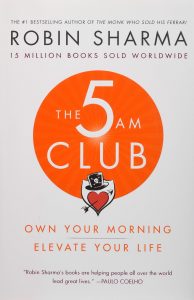
Well, you just mentioned one before we started recording that you read recently called The 5 AM Club.
Yes. The 5 AM Club. So this one I get up at 5 AM, so I consume other books, but I never take a book like a bible you have to follow it. I just like to pick out what I think makes sense. I started getting up at 5 AM for the last six days. It’s been working really great even on the weekends, and I do my morning routine a little earlier, and I started journaling, and I’m testing these new habits out and see if they stick and if they enrich my life if they don’t I’ll throw them out again.
And you sleep how many hours a night?
I’m okay with five hours also four hours I can sustain for a while, and I don’t sleep much more than six hours usually.
That’s less than what is recommended, right? So seven or eight hours is recommended?
I’ve heard a lot of stuff like you have to sleep eight hours plus or whatever, but when I lay too long and my body hurts when I sleep longer, and I’m tired. Suppose I’m super tired during the day, which doesn’t happen that much, I just like to take a power nap for 15 minutes, and it’s okay. I think when I stopped eating meat and dairy, I’ve not had meat for over 20 years, but I became vegan maybe seven, eight years ago. So as I mentioned, I smoked too much weed as a teenager like to time things. Since then, I think I can sleep a little less because I guess my body just has less work to do. And anything after 9 PM, it’s like another thing like you just sleep better and more rested.
Right, so what inspired you to become vegan?
I became vegetarian at 18 or 19 because I just didn’t like meat anymore, no particular reason. And then I watched this TEDx Talk called Beyond Carnism.
Is that Melanie Joy?
Yes.
I’ve had her on the show.
You have everybody on the show.
I have pretty much everybody.
And this was just a big eye-opener for me how bad we treat animals that I have to do it. With all this factory farming and I can’t justify just because I like eating cheese that an animal suffers, I think it’s just like, not cool. That’s like everybody can do whatever they want to do, I don’t want to be the annoying vegan.
Yeah, you know the joke, do you know how to tell if somebody is a vegan?
No.
Because they’ll tell you.
If somebody is a vegan and does CrossFit, what does he talk about first?
Exactly. And I’m pretty much vegan, but I’m not super strict. So if it’s got some dairy in it, like a baked good or something, I’ll still eat it, but I don’t drink milk, haven’t drank milk for ages. Anything with cheese in it, I don’t eat cheese, I’ll eat the vegan cheese equivalent. My wife is not even a vegetarian, so she’s a meat-eater, so it’s a little interesting.
Everybody has to make their own decisions.
My wife stopped eating meat a few years ago, but she used to eat it, and she still eats fish and cheese. And I was like, but everybody has to do what everybody else wants to do. I can’t force anybody. For example, on my daughter, she eats meat, and as long as she wants to eat meat, she’ll eat meat. She doesn’t eat a lot of meat because there’s no meat at home, but when we go out, she eats meat. Everybody has to make their own decisions.
Yeah, that makes sense. Well, I advocate veganism, but I am not proselytizing it, I don’t shove it down people’s throats, and I think that one of the reasons for that is one, it created a lot of conflict in my life and in the past, but also, I think it’s an inevitability that within the next maybe five years, ten years max, we won’t be having factory farm, like big agriculture with all the animal slaughter. I think it’s just going to be generated from cell cultures. That’s just the future because it’s going to be cheaper and more scalable.
I heard some veganism activists say something that was pretty profound, I think. If we at some point, we may look back at slaughtering animals in our factory farming animals the same way we look back at slavery, like how we could have done something that cruel? What’s wrong with us?
Well, that’s the whole point of carnism, is that we’re kind of asleep in certain aspects. We don’t want to know what happens behind closed doors at the feedlots and all that sort of stuff, we’re just kind of conveniently compartmentalizing that. Okay. Super quick question, what’s your favorite meditating book, resource, app, tool of some sort, like what helped you the most?

It’s the Inner Engineering.
So the Inner Engineering course, isn’t there a book?
He also released a book. I bought the book, but I never read it, I have to admit.
Awesome. Okay, so I know we’re out of time. Thank you so much. And again, if you could also just reiterate what those website addresses are for connecting with you for signing up for the course Managing Happiness for those of us who are coaches and want to check out your UpCoach platform, what are the websites that we want to send folks to?
So Managing Happiness under managinghappiness.com and UpCoach under upcoach.com and my personal website is davidhenzel.com, where you can find links to all the other businesses I’m involved, in case you’re curious and you can always reach me at @DavidHenzel on Facebook or Twitter or whatever your preferred social media platform.
Okay. Awesome. Thank you so much, David. And listeners, please take some of this in and change your life, not just your own but somebody around you can really benefit, it’s a ripple effect that you could change the world just by changing yourself.


